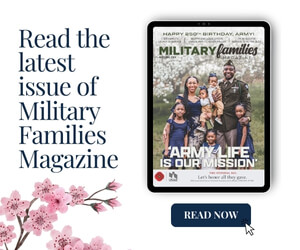For military families, moving, changing, transitioning and adjusting are a normal part of this lifestyle. But because of this, we can easily overlook the needs and anxieties that can arise during those times. We feel hard pressed to ‘suck it up’ and keep moving to support our spouse and children.
But what happens when your emotional needs affect your ability to function daily?
I found myself in this place as my family made its last move after my husband’s retirement. Something was off with me. Although we had heavily planned out our transition—there are always factors you won’t be able to control—I wasn’t ready for my emotional response to this major change. So I asked for help.

Tiffany and her husband took a trip to Jamaica after retirement.
I was diagnosed with what is called General Adjustment Disorder with Anxiety. It comes from difficulty coping with a stressful event and usually lasts no longer than six months.
This was a bit of a mind blow for me because I hadn’t ever heard of it before. I didn’t even know this was a thing.
Keep in mind, this isn’t just from a “move”. Adjustment anxiety can be triggered by any stressful event. That includes deployment, changing units, a change of command.
Notice the trend? It’s the word CHANGE.
Here are five ways to cope when you have difficulty adjusting and feel extreme anxiety.
- Acknowledge yourself.
Don’t sweep how you feel under the rug! Realizing that you are having a difficult time coping doesn’t make you a weak person. The best thing you can do is to be honest with yourself about how life/change is affecting you.
- Talk with your family.
It’s important to create a dynamic in your home of being a “safe place.” By having this honest conversation, you entrust your family with your vulnerability and also model good mental health practices for your kids.
- Get help. The World Health Organization reports that nearly two-thirds of people battling a mental disorder don’t seek help from a health professional. Unfortunately this is due to the social and cultural stigma that is associated with getting therapy. But in the last couple of years this conversation has started to shift as more attention is brought to mental health and treatment. There are many free resources available to military families. Call Military OneSource for more information at 1-800-342-9647.
- Pace your process. There is no cookie cutter way to approach treatment. Respect your uniqueness, refuse to compare your journey to anyone else’s and give yourself time to heal properly and get over whatever event has caused your anxiety
- Manage the stressors.Avoidance isn’t always possible if change itself is your stressor. However in my case there were certain factors that added to my anxiety. I learned how to recognize their onset and navigate through those emotions.
Can you think to a time when you were unusually anxious after a major change or event with your spouse or family?
Read comments












































